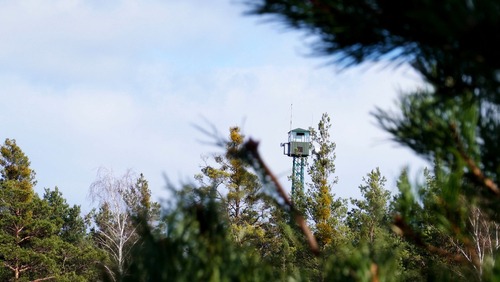
The U.S. Department of Homeland Security (DHS) Science and Technology Directorate (S&T) announced Thursday that it had successfully tested early wildfire detection technology prototypes this week in California.
Conducted during a controlled, prescribed burn at the Dye Creek Preserve near Red Bluff, Calif., the test was the second phase of S&T’s Wildland Urban Interface (WUI) wildfire sensor technology program. The evaluations were done in partnership with the California Department of Forestry and Fire Protection (CAL FIRE) and The Nature Conservancy, as well as the California Governor’s Office of Emergency Services and the U.S. Fire Administration (USFA).
S&T worked with four industry partners – Ai4 Technologies, Inc., of San Francisco, California; Breeze Technologies UG of Hamburg, Germany; N5 Sensors, Inc., of Rockville, Maryland; and Valor Fire Safety of Londonderry, New Hampshire – to refine and enhance their wildfire sensor technologies and platforms, then connected the companies with the end-users, like the Federal Emergency Management Agency (FEMA), as well as state and local fire services, who gave feedback on the technologies.
During the prescribed burn, the prototype sensors were deployed at various distances from the ignition point and then were monitored to establish baselines for the generation of alerts. The demonstration further proved that sensor technologies can be valuable for both first responders and the public.
“Through a combination of particulate, air quality, optical sensing, thermal imagery, and photoelectric sampling, as well as the development of detection algorithms, this sensor technology will assist with early warning for wildfires, especially those near communities that have been devastated by these events in the past,” said S&T Program Manager Jeff Booth.




